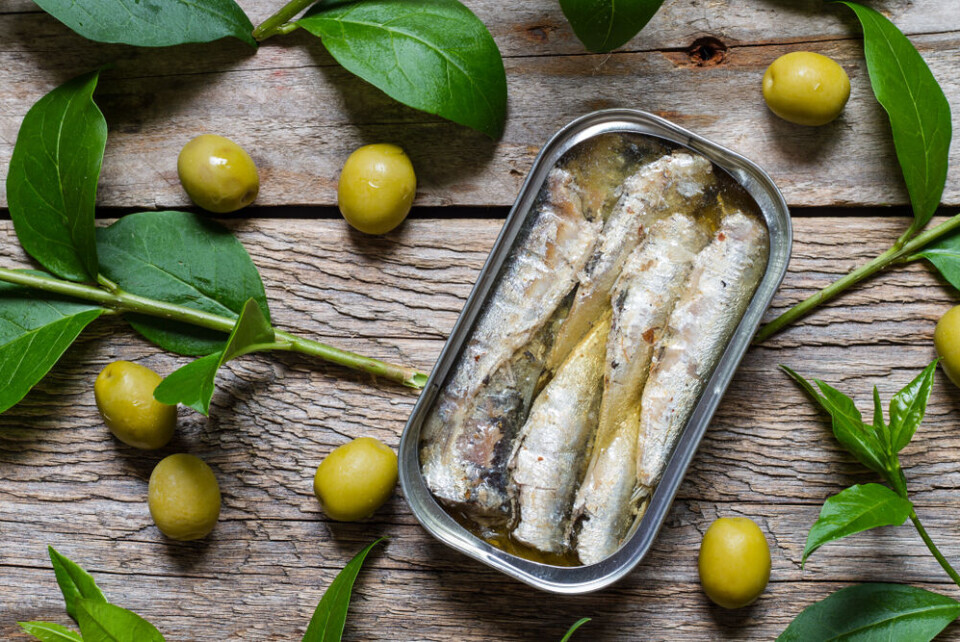-
How did George Clooney obtain French citizenship despite speaking little French?
Were 'double standards' involved, or did he follow standard procedure?
-
Americans in France protest against ICE
Tensions rise after two people die shot by immigration officers in Minnesota
-
Income tax bands in France for declarations in 2026 (for 2025 income)
The thresholds are usually updated each year in line with inflation
Woman dies and eight in hospital over suspected botulism in Bordeaux
The sick people are reported to be mainly foreigners - from America, Canada and Germany. They fell ill after eating tinned sardines in a wine bar

A woman has died and eight others have been hospitalised with what is suspected to be a very rare case of foodborne botulism in Bordeaux. They had all eaten tinned sardines at a wine bar.
The sick people are reported to be mainly foreigners - from America, Canada and Germany - who visited the Tchin Tchin Wine Bar between Monday September 4 and Sunday September 10. In total, 12 cases have been detected, with authorities bracing for up to 13 more cases in the next few days.
The nationality of the 32-year-old woman who has died has not been revealed. She died after returning home with her partner in Ile-de-France.
Anyone else who has visited the bar recently and feels ill (see symptoms below) is urged to make contact with health officials as soon as possible.
The woman died in the Ile-de-France region near Paris on Tuesday evening, reports Dr Benjamin Clouzeau, who works in the intensive care unit at Bordeaux’s university hospital.
He said another case has been detected in Spain, and the person concerned is believed to have eaten in the Bordeaux restaurant before travelling on to Spain. A man in Germany has also been diagnosed with the disease and hospitalised after eating at Tchin Tchin Wine Bar.
La DGS annonce ce soir de nouveaux cas dont un décès en région parisienne. L’ensemble de ces patients sont rattachés aux foyers Bordelais.
— benjamin Clouzeau (@clouzeau_b) September 12, 2023
Il est important que nos collègues soient alertés afin de ne pas méconnaître des patients. https://t.co/dIkR8fcMIK
Mon message posté il y a5 minutes est déjà obsolète : un nouveau cas en Espagne (toujours rattaché au foyer Bordelais) vient de nous être rapporté… https://t.co/R1viesGnxg
— benjamin Clouzeau (@clouzeau_b) September 12, 2023
Meanwhile seven of the eight hospitalised patients are in “intensive care or in a continued monitoring unit,” said Bordeaux health chiefs.
Read more: Nearly 6,000 food products recalled in France over two years
Popular with Anglo-Saxon customers
The Tchin Tchin Wine Bar is popular with Anglo-Saxon customers. The tinned sardines suspected of causing the outbreak were prepared by the restaurant owner.
It also noted that the majority of the people who had fallen ill were foreigners (American, Canadian and German).
Samples of the sardines that had been given to customers had been taken by the regional health agency.
“I acknowledge that I had a batch of tinned sardines and when I opened them I had to throw away some of them which had a strong smell. Others seemed good [to use] and were served to clients,” the owner told Sud Ouest, with the media saying he looked “distressed”.
“I am devastated for these clients if it turns out they fell ill at my restaurant,” he added.
The restaurant, which was open Monday night, has been banned from serving dishes using tinned goods as the enquiry into the source of the outbreak continues.
Results from the analyses of the food samples taken from the wIne bar have yet to come back, but Sud Ouest said “according to its information, [blood tests] have confirmed the presence of type E botulism… characteristic of fish”.
What is botulism?
Botulism is a rare but potentially fatal neurological disease, caused by a powerful neurotoxin produced by the Clostridium botulinum bacteria.
It is most often caught by eating infected food. The ARS noted it develops “in tinned food which has not undergone an extensive sterilisation process: pickled products, charcuterie or homemade or artisanal products”.
France’s official health authority website states that it can take between 12 to 72 hours for symptoms to develop and cannot be passed from one person to another. The disease is rare in France, with around 0.4 cases per 1 million inhabitants in France each year.
However, botulism can be fatal in 5-10% of cases, with mortality rates rising in those who are not diagnosed quickly. There are around 20-30 cases a year in France.
Read more: Listeria fears spark mass recall of chicken and charcuterie in France
What are the symptoms?
The symptoms of botulism are fatigue, weakness, vertigo, troubles swallowing, dry mouth, various digestive problems (including vomiting, abdominal pain and diarrhoea) and eye sight problems (blurred vision for example).
In more severe cases, the toxins stop motor neurons and muscles communicating, leading to paralysis.
Antibiotics have no effect on botulism, with treatment effectively used to manage symptoms, while an anti-toxin can be used in the first hours and days after symptoms develop to reduce time spent in hospital. In severe cases, patients are put on ventilator machines.
The French government recommends avoiding the disease by not eating tinned food if it has a strange colour, smells funny or if the tin has swollen. It also recommends keeping food at the right temperature, eating food quickly after opening the packaging and following the recommended 'use by' dates.
Read also:
From a French vineyard: The science behind why wine goes bad
French legal investigation opened after two contaminated pizza deaths
























